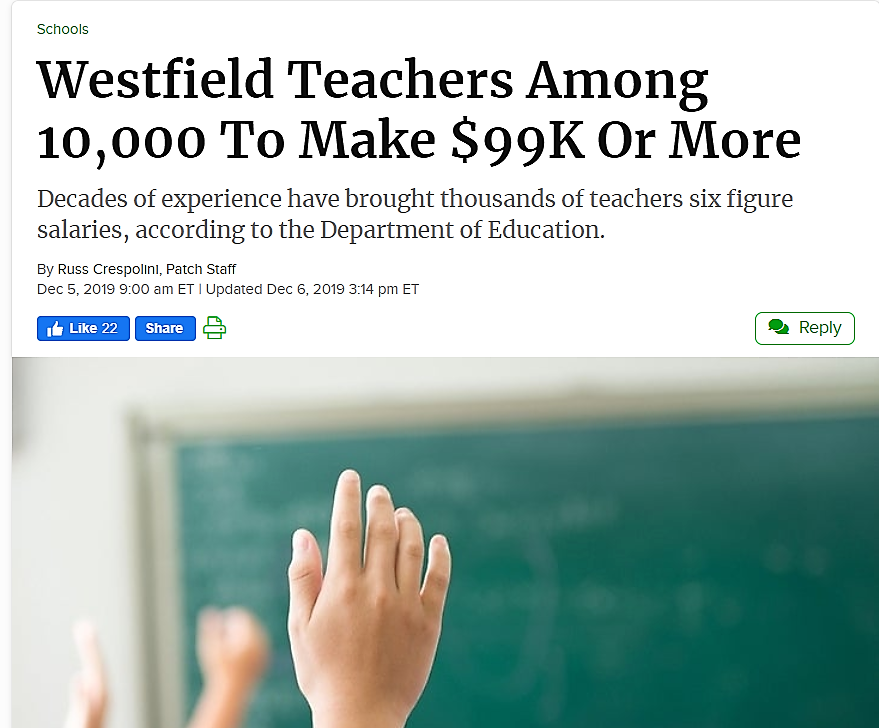Misleading teacher salary reports lead to controversy
Photo Westfield Patch
Dec. 5 article from Westfield Patch
On Dec. 5, Westfield Patch published an article citing the Westfield Public Schools teachers who make over $99,000 annually, compiled from an earlier list from Patch that included all New Jersey teachers who make over that amount. However, many of these salaries were reported incorrectly and were over-inflated incomes for 2019, putting teachers on the list who should not have been there. Patch stated that the information was provided by the New Jersey Department of Education.
All public employees’ salaries are public record by law, and it was found that 16 teachers at WHS alone had an incorrect salary reported in the article. Eight of these teachers had a number reported that was over $10,000 more than their actual salary.
These widespread discrepancies led to an outcry by district teachers. Many wondered how these numbers were produced, where the data was from and who was at fault.
Every year, teachers report their salaries in September to the state, and for 2019, any teacher who took on an extra class for a teacher out on leave was compensated for one and two- tenths salary. Therefore, the NJDOE reported that certain teachers made an extra 20% on their salary for that school year even if they didn’t cover that extra class for the entire year.
In reality, those particular teachers were only making additional money for the extra class during the period that they were teaching the class. For example, a teacher may cover a class for one month, but it is reported by the NJDOE that they covered the class for the entire year. This also means that if a teacher does not cover an extra class for this current school year, they are making significantly less money now than was reported for last year.
The numbers released by the state are technically legitimate, but they were likely only used to calculate the pay for teachers at a certain date and do not reflect the actual yearly income of many of these individuals. Despite this, there was no warning of these possible inaccuracies.
Although there is a reason for the incorrect numbers, the fact that there was no word of caution or disclaimer in the articles about the possible errors caused some to feel that the article was a problem.
“My salary is a matter of public record, and that’s fine, but when you publish inflated salaries, particularly during a negotiations year, you run the risk of really inflaming the opinions of the public, which is unwarranted and unjustified and potentially harmful,” said WHS English Teacher Aimee Burgoyne-Black.
For example, a comment on the original article by Patch tells the state to “give taxpayers a break” and that the districts paying teachers over $100,000 “should be ashamed of themselves.”
Hi’s Eye reached out to both Patch and the NJDOE. Patch said that they would not comment on the record, and the NJDOE has yet to return our phone call. As Hi’s Eye went to print, articles regarding teachers’ salaries are still up on patch.com.

